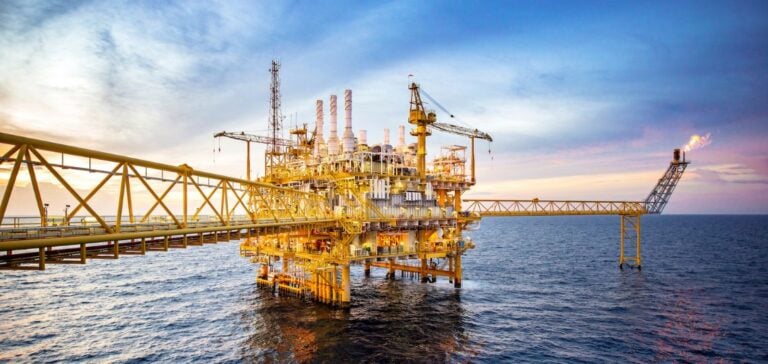Azerbaijan and Kazakhstan are currently negotiating to increase the transit volume of Kazakh oil via Azerbaijan to between 5 and 7 million tonnes. The announcement was made by Zaur Gakhramanov, advisor to the Chairman of SOCAR (State Oil Company of Azerbaijan Republic), underlining a strategic step forward for both countries. Kazakhstan is seeking to reduce its dependence on Russia for energy exports, while the majority of its oil flow – 1.5 million barrels per day (representing 1.5% of global supply) – currently transits through various Russian pipelines. This diversification is crucial to strengthening Kazakhstan’s energy security.
Expanding infrastructure
SOCAR plans to open a new oil terminal this summer, following reconstruction work at Dubendi, near the capital Baku. This terminal will have a transit capacity of 10 million tonnes per year, increasingAzerbaijan ‘s total transit capacity to 20-25 million tonnes per year. This infrastructure expansion is essential to support increased transit targets. In 2023, Kazakh oil transit via Azerbaijan will amount to 1.4 million tonnes. SOCAR forecasts that this figure will reach 1.7 to 1.8 million tonnes this year and 2.2 million tonnes by 2025, showing steady growth in transit volumes.
Strategic agreements and prospects
In March, SOCAR signed an agreement with KazMunayGas (KMG), Kazakhstan’s national oil company, to gradually increase the volume of oil transported via the Baku-Tbilisi-Ceyhan (BTC) system to 2.2 million tonnes. This agreement underlines the importance of regional cooperation in the energy sector for both countries. Discussions are also underway to potentially transport 5 million tonnes of Kazakh oil via the Baku-Supsa pipeline in 2023. This diversification of export routes is crucial to reducing the risks associated with a single dependency and strengthening the economic resilience of both nations. This growing collaboration between Azerbaijan and Kazakhstan illustrates the importance of regional cooperation for energy security and the diversification of export routes. By increasing transit capacity and investing in key infrastructure, both countries are positioning themselves to play a central role in the global energy market. The prospect of these projects is promising, offering not only increased security for Kazakhstan’s oil exports, but also an opportunity for Azerbaijan to strengthen its position as a regional energy hub.






















